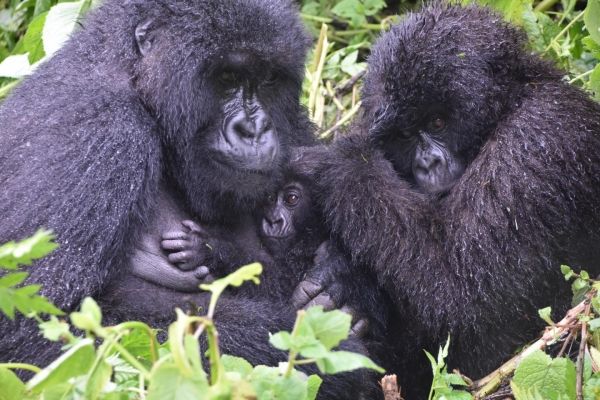A study published today in Scientific Reports suggests that new health challenges may be emerging as a result of conservationists’ success in pulling mountain gorillas back from the brink of extinction.
The study, the first species-wide survey of parasite infections across the entire range of the mountain gorilla, was conducted by an international science team led by the Institute of Vertebrate Biology, Czech Academy of Sciences; University of Veterinary Sciences Brno, Czech Republic; Gorilla Doctors; and the Dian Fossey Gorilla Fund. The work was conducted in collaboration with the protected area authorities of Rwanda, Uganda and the Democratic Republic of Congo (the Rwanda Development Board, the Uganda Wildlife Authority and l’Institut Congolais pour la Conservation de la Nature, respectively).
A growing concern
All mountain gorillas live in fully protected national parks in Rwanda, Uganda and DR Congo, where the potential for spatial expansion is extremely limited due to dense human communities living nearby. Consequently, as gorilla population densities within the protected areas increase, their susceptibility to infectious diseases may also.
Read more at University of California - Davis
Image: A mountain gorilla family in Rwanda's Volcanoes National Park in 2020. (Credit: Gorilla Doctors)


